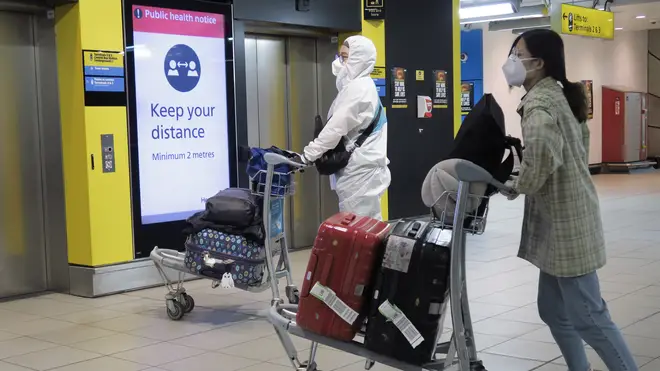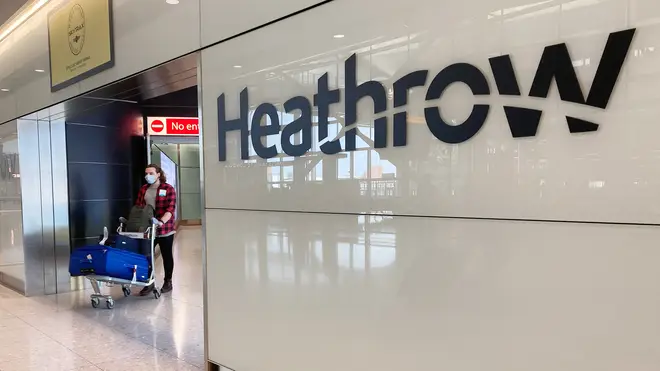
Iain Dale 7pm - 10pm
17 May 2020, 10:07

The boss of Heathrow Airport warned quarantine measures should not extend beyond "a relatively short amount of time" to save the economy.
John Holland-Kaye he revealed passenger numbers have dropped 97 per cent amid the coronavirus pandemic.
He urged the Government to begin to allow flights between low-risk countries after numbers fell from an average of 250,000 passengers a day to 5,000 to 6,000.
The airport boss said most passengers are either repatriating to the UK or going home to other countries.
Mr Holland-Kaye added: "This is a very minimal level of traffic and I think that as long as the quarantine is in place that will continue at those low levels.
"The quarantine cannot be in place for more than a relatively short amount of time if we are going to get the economy moving again. There needs to be a plan for what comes next.

"This is where we are urging the Government to have a common international standard, working with other countries so that traffic can start to flow in a normal way between low risk countries."
Mr Holland-Kaye also said the UK Government should take a risk-based approach when determining what countries passengers can fly to and from.
He added there should be a "free flow" of passengers between the UK and countries that have very low risks of transmission of the virus.
"As we went into this crisis, every country had its own plan and that, I think, has led to a lot of confusion among passengers as to what they should expect when they're travelling," he told Sky News.
"As we come out of the crisis, we need to have something that is more consistent so that we can not only build confidence but also to make it safe for people to travel again.
"I think that if the UK Government, with one of the biggest aviation sectors in the world, were to get together with European Union and the United States, between them they have the heft and the global, diplomatic and economic power to set that international standard.
Listen & subscribe: Global Player | Apple Podcasts | Google Podcasts | Spotify
"I think the approach to take is the risk-based approach as we do with security, where if two countries are very low-risk free of transmission there should be a free flow of passengers between those countries."
Carolyn Fairbairn, director-general of the Confederation of British Industry (CBI), backed his position.
Asked about the Government's plan to have international travellers self-isolate for 14 days when they arrive in the UK, Dame Carolyn told Sky News: "We would like to see an international standard. At the moment you've got different countries doing different things and that is very bad for global trade.
"We do ask the Government to think very carefully about how this is introduced so that it doesn't put the brakes on our economy in this fragile recovery."
On antibody testing and the potential for a so-called immunity passport, Mr Holland-Kaye welcomed the idea but said there needed to be a commonality between countries for it to work.
He said: "We need to have some consistency between countries as to how this works.
"It's no good the UK having a health passport if another country has an entirely different system.
"We need to have that commonality between markets so that we know your health passport is accepted in the country you're going to."
He said Heathrow Airport is using thermal imagining as screening process to detect Covid-19 among passengers.
"We are working with Public Health England to see if that could be part of the solution to health screening at airports," he added.